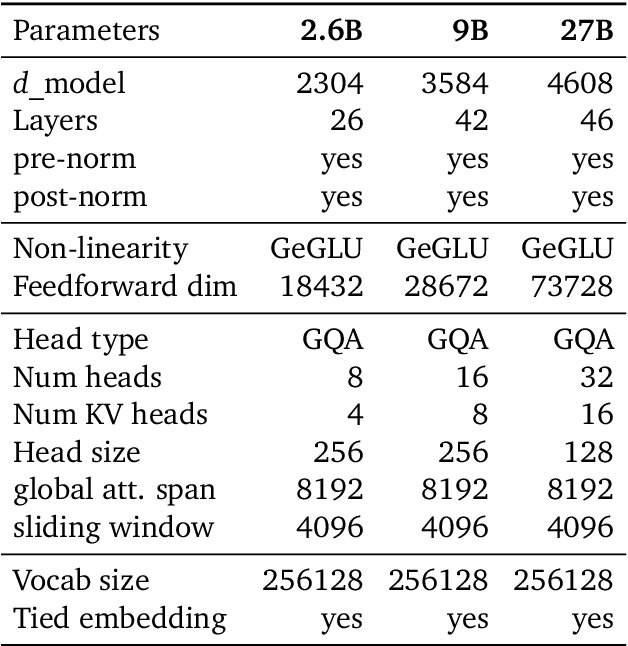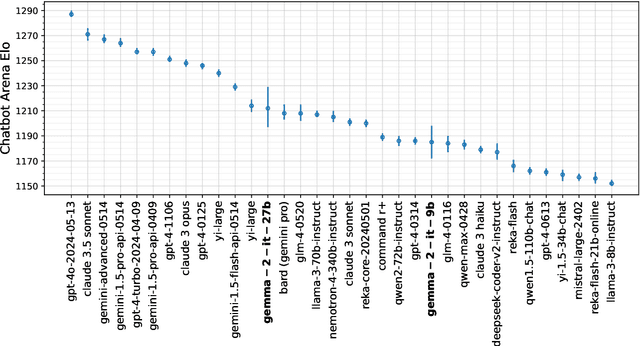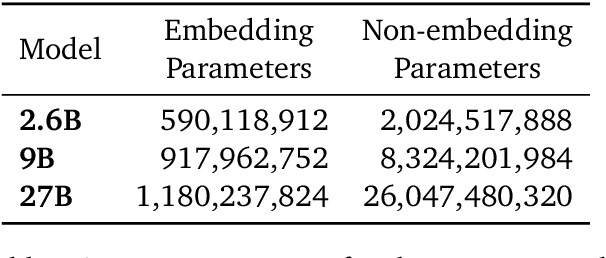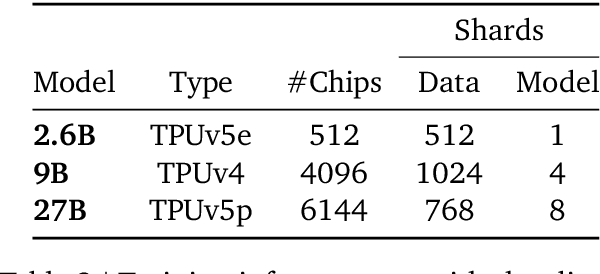Wenming Ye
Gemma 2: Improving Open Language Models at a Practical Size
Aug 02, 2024



Abstract:In this work, we introduce Gemma 2, a new addition to the Gemma family of lightweight, state-of-the-art open models, ranging in scale from 2 billion to 27 billion parameters. In this new version, we apply several known technical modifications to the Transformer architecture, such as interleaving local-global attentions (Beltagy et al., 2020a) and group-query attention (Ainslie et al., 2023). We also train the 2B and 9B models with knowledge distillation (Hinton et al., 2015) instead of next token prediction. The resulting models deliver the best performance for their size, and even offer competitive alternatives to models that are 2-3 times bigger. We release all our models to the community.
In-Context Learning with Iterative Demonstration Selection
Oct 22, 2023



Abstract:Spurred by advancements in scale, large language models (LLMs) have demonstrated strong few-shot learning ability via in-context learning (ICL). However, the performance of ICL has been shown to be highly sensitive to the selection of few-shot demonstrations. Selecting the most suitable examples as context remains an ongoing challenge and an open problem. Existing literature has highlighted the importance of selecting examples that are diverse or semantically similar to the test sample while ignoring the fact that the optimal selection dimension, i.e., diversity or similarity, is task-specific. Leveraging the merits of both dimensions, we propose Iterative Demonstration Selection (IDS). Using zero-shot chain-of-thought reasoning (Zero-shot-CoT), IDS iteratively selects examples that are diverse but still strongly correlated with the test sample as ICL demonstrations. Specifically, IDS applies Zero-shot-CoT to the test sample before demonstration selection. The output reasoning path is then used to choose demonstrations that are prepended to the test sample for inference. The generated answer is accompanied by its corresponding reasoning path for extracting a new set of demonstrations in the next iteration. After several iterations, IDS adopts majority voting to obtain the final result. Through extensive experiments on tasks including commonsense reasoning, question answering, topic classification, and sentiment analysis, we demonstrate that IDS can consistently outperform existing ICL demonstration selection methods.
 Add to Chrome
Add to Chrome Add to Firefox
Add to Firefox Add to Edge
Add to Edge